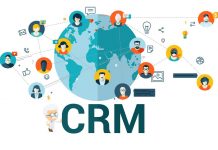When tax season rolls around, it’s natural for businesses to feel the pressure. The good news is that with a little bit of planning, they can handle their taxes without too much trouble. It’s all about being smart with your finances and knowing what moves to make. There are plenty of straightforward strategies that can help keep more money in your small business.

In this article, we will look at some of these strategies and help small businesses deal with tax burdens.
1. Understanding Recovery Startup Businesses for ERC
A recovery startup business refers to a new company that started after February 15, 2020. It’s part of a tax program that helps such businesses keep more money during tough economic times. If your business fits this category and meets certain earnings guidelines, you may qualify for the Employee Retention Credit (ERC).
This program was specifically for businesses that began during the pandemic and faced challenges right from the start. The ERC gives these businesses a chance to claim back some of the taxes they’ve paid on wages. This represents a form of financial recognition for maintaining your workforce during the initial, uncertain period of business operation.
For businesses, this could mean more funds to invest in growth or to cushion against future uncertainties. After learning all this, if you think your business qualifies as a recovery startup business, research what is a recovery startup business for ERC online to learn more.
2. Disabled access credit
The Disabled Access Credit supports small businesses in making necessary adjustments to welcome customers and employees with disabilities. Imagine a café owner installing a ramp for wheelchair users or a bookstore offering audiobooks for the visually impaired—these are the types of changes this credit covers. If your business makes less than $1 million a year or has fewer than 30 full-time workers, you might be eligible.
You can receive a credit for half of your spending on these improvements, up to $5,000. This helps businesses open their doors wider to everyone, reflecting a community that values inclusivity. Just remember, the first $250 you spend won’t count towards the credit.
3. Save Money for Healthcare Needs
Saving money for healthcare is a smart tax move for small businesses. Healthcare expenses are unpredictable and often costly. To prepare for this, consider using a Health Savings Account if you’re enrolled in a high-deductible health plan. HSAs are valuable because the money you put in is not taxed.
This means more of your earnings go directly into your account rather than to taxes. Plus, the money in your HSA grows without being taxed, and when you use it for qualified medical costs, you don’t pay taxes on it either.
4. Install a Solar Power System
Businesses that own their buildings have a good opportunity to save money by installing solar panels. It’s a move that’s kind to the environment and can lead to smart savings. The government offers strong tax breaks to help. You can get a tax credit for 30% of the cost of your solar system, which means you keep more of your money.
When you install the solar panels, you can also lower the income you pay tax on by deducting the cost of the system. If you took a loan for the solar panels, the interest you pay can also lower your taxes.
5. Buy or Lease an Electric Vehicle
When businesses invest in electric vehicles, they’re not only contributing to a greener environment but also capitalizing on favorable tax incentives. The government extends tax credits for adopting electric vehicles as part of its initiative to lessen environmental impact. These incentives are designed to offset the costs associated with going electric.
While high-income businesses might not qualify for these credits on purchases, leasing offers a workaround, enabling a business to benefit from the full tax credit.
6. Revisit Employee Compensation
When a company pays its employees well and on time, it’s not just good for the team; it’s smart for the business’s taxes. Salaries and bonuses given out during the year can lower the company’s tax bill because these costs can be subtracted from the profits. This step has an additional advantage to the tax cut. When businesses pay their employees well and offer bonuses, they improve their employee retention rate.
You get a motivated workforce dedicated to growing your business, and at the same time, you enjoy a reduction in taxable income.
7. Home Office Deduction
The home office deduction offers small businesses a significant way to lower their taxes. To qualify, two key conditions must be met. Firstly, a specific area in your home must be set aside exclusively for business use. This means using this space only for work, whether it’s a spare room or a part of your living area.
Secondly, this area should be your main business location or a space where you often meet clients. Remember, it’s about the primary use of the space – a clear distinction from the rest of your home is essential.
8. Financing Costs For The Business
Efficiently managing expenses is a critical component for businesses, especially when it comes to financing costs. The IRS permits deductions for various finance-related charges, such as interest on loans and credit card fees, which can lower the taxable income of a business.
However, not all interest expenses are eligible for deductions. Businesses need to be vigilant about the rules, particularly with significant purchases like property. Deductible interest can include that on loans taken out for business spaces.
Additionally, late payment fees on business invoices may also reduce tax obligations, provided they align with IRS guidelines. Businesses need to identify eligible finance costs to optimize their tax positions.
Conclusion
In summary, smart tax strategies are crucial for small businesses looking to save money and grow. By tapping into tax credits, optimizing compensation, and making savvy investments like solar energy, companies can significantly cut their tax bills. Always stay informed and consider these simple yet effective ways to keep your business financially healthy and thriving.
Read More:
aqr capital management hedge fund
Renaissance Technologies fund performance
I am a writer based in London, specialising in finance, trading, investment, and forex. Aside from the articles and content I write for IntelligentHQ, I also write for euroinvestor.com, and I have also written educational trading and investment guides for various websites including tradingquarter.com. Before specialising in finance, I worked as a writer for various digital marketing firms, specialising in online SEO-friendly content. I grew up in Aberdeen, Scotland, and I have an MA in English Literature from the University of Glasgow and I am a lead musician in a band. You can find me on twitter @pmilne100.




































